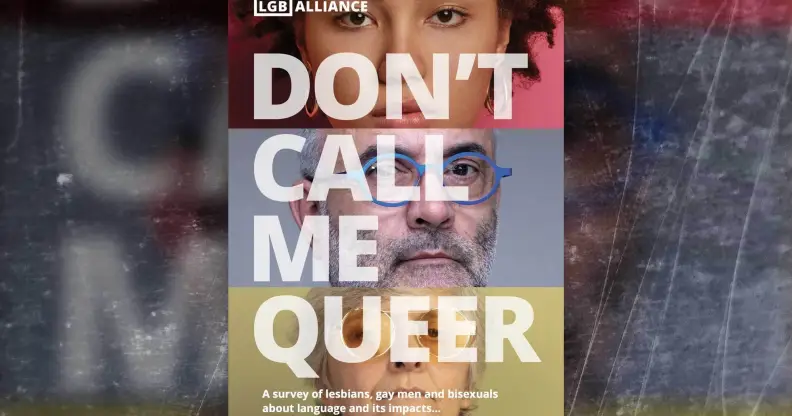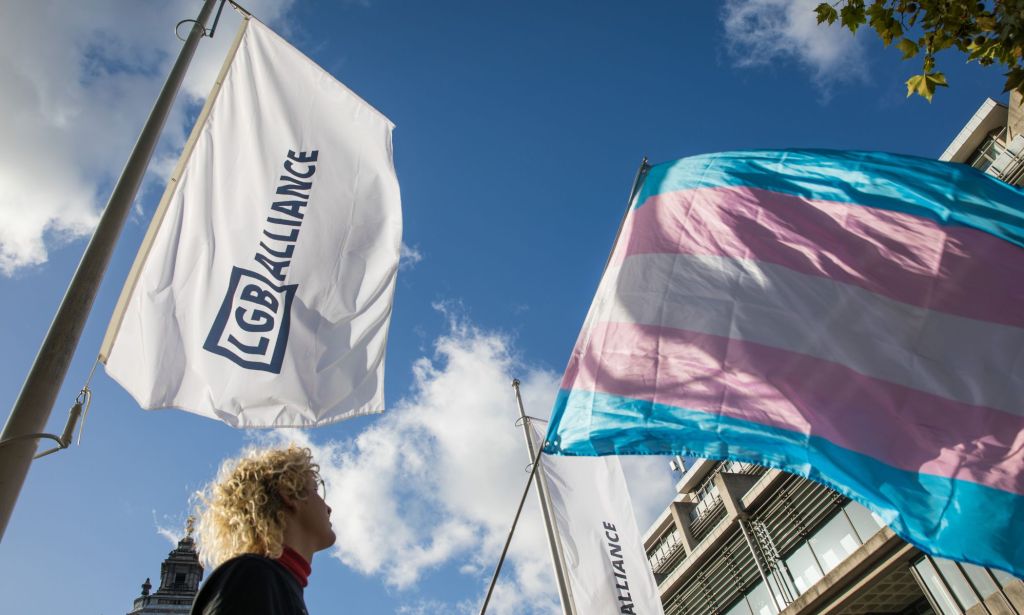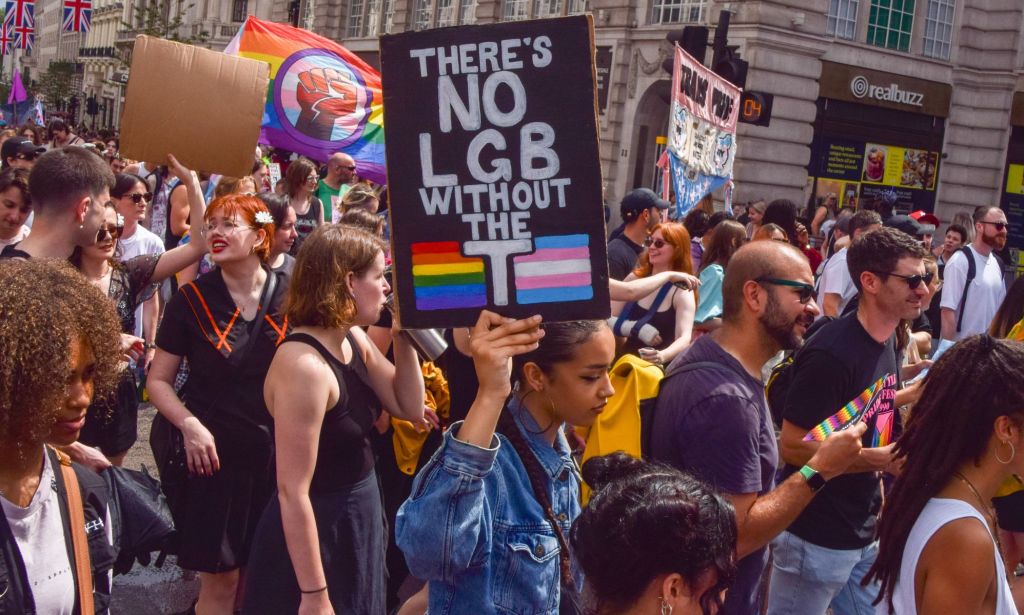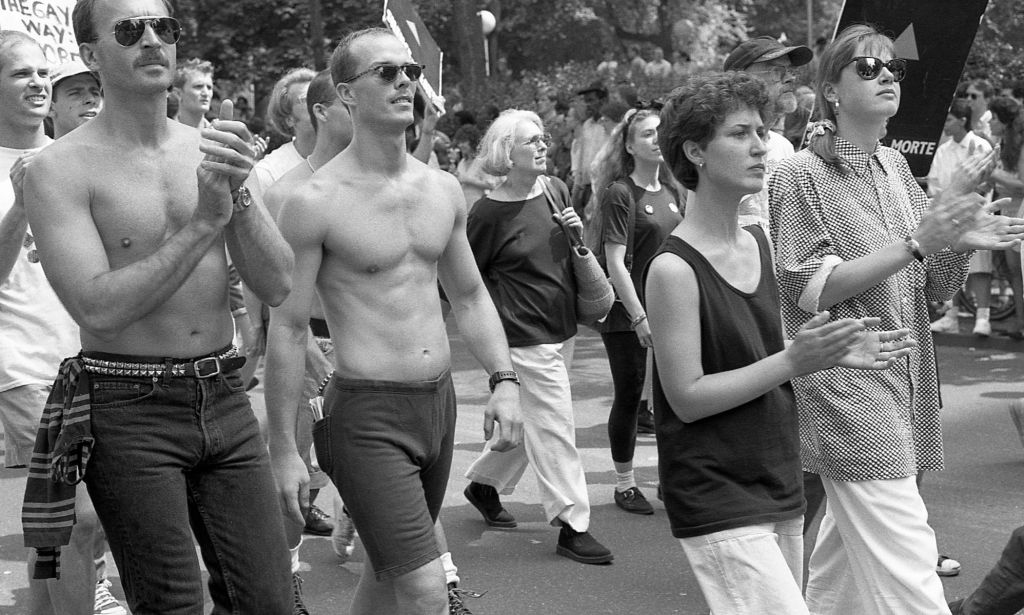The wildest claims LGB Alliance makes in its report against the word ‘queer’

A new LGB Alliance report calls for a division between LGB and TQ+ people. (Credit: LGB Alliance)
The LGB Alliance has made a number of wild and curious claims about the terms “queer” and “LGBTQ+” in an eyebrow-raising report.
The controversial group surveyed its own supporters in a document published on Sunday, 29 October to coincide with its annual general conference. The report attempts to justify the removal of trans and queer people from the LGBTQ+ acronym.
In a post sharing the report on X/Twitter, LGB Alliance wrote that it “surveyed our supporters to gauge their support for our position”, a statement that was widely mocked for its lack of awareness around questioning its supporters whether it supports the group.
The report itself is full of negative claims about trans inclusion in LGB spaces.
One of the questions asked: “How can LGBTQ+ organisations argue that homosexuality is valid and that a gay man who will not consider a relationship with a female, who identifies as male, is a bigot?” – an anti-trans reference to trans men.
- LGB Alliance: Anti-trans lobby group’s troubling, ugly history
- LGB Alliance co-founder claims lesbian, gay and bisexual children do not exist
- LGB Alliance Ireland labelled ‘far right hate group’ in new extremism report
The group, which has long been criticised for its anti-trans rhetoric, has routinely highlighted its objection to the term queer, often using the phrase “queer theory” as a dog whistle for discussing gender identity.
Here are just a few of the claims made by the LGB Alliance in its report, named Don’t Call Me Queer: A Survey of Lesbians, Gay Men and Bisexuals about Language and its Impacts.
The LGB Alliance’s survey results
The bulk of the LGB Alliance’s report delves into the results of a survey of the group’s own supporters and how they feel about the terms queer and LGBTQ+, and makes demands for people to stop using them across the UK.
This does not sound much like “free speech” – which is one thing LGB Alliance does appear to campaign tirelessly for.
According to the report methodology section, the LGB Alliance received 2,133 responses after emailing its 7,021 newsletter subscribers – a response rate of 30 per cent.
It then removed responses from its non-LGB supporters, bringing the total sample down to 1,709 – a response rate of 24 per cent.
In the report, LGB Alliance admits that the findings represent the views of the organisation and its members only and therefore do not represent the feelings of the wider LGBTQ+ UK public.
Despite this, the survey results found that 94 per cent of LGB Alliance supporters – not the UK as a whole – like to be defined as LGB, while 7 in 10 feel very uncomfortable using LGBTQ+.
Comparatively, a survey conducted by YouGov, published in July 2023, found that just three per cent of respondents like to use LGB, while a collective 42 per cent prefer to use LGBTQ+ or LGBTQ.
‘LGBTQ+ is as offensive as BAME’

In a section titled ‘Time for Change’, LGB Alliance compares the term LGBTQ+ to the defunct acronym BAME (Black, Asian and Minority Ethnic) arguing that both are “no longer helpful” in defining their respective groups.
It refers to recommendation 24 of a government’s report into the Commission on Race and Ethnic Disparities, which argues that the acronym should not be used to “better focus on understanding disparities and outcomes for specific ethnic groups.”
BAME has been a contentious term for some time, with groups arguing it strips the individualities of multiple marginalised groups and attempts to shoehorn them under one umbrella term.
This, however, is not the case with the term LGBTQ+ or queer. Not only have both terms been used historically by the community since at least the 1980s, but it was popularised because lesbian, gay, bisexual, and transgender individuals have a closely-knit history.
In its glossary of terms, advocacy group GLAAD argues that the acronym is recommended by organisations thanks to its applicability to the diversity of the community.
It also argues that the term “gay community” should be avoided, since it does not accurately reflect the LGBTQ+ community.
‘TQ+ lobbyists are erasing homosexuality’

The LGB Alliance report also lists a number of statements from respondents – all of whom are LGB Alliance supporters – that claim trans, non-binary and queer groups are attempting to “erase homosexuality” by disregarding sex and replacing it with gender identity.
One respondent wrote: “Homosexuality has very little to do with transgender, so it is not clear what the connection is other than one of solidarity.”
The LGB Alliance itself wrote that it believed “TQ+ lobbyists” are seeking to reorder society to “erase the notion of sex in a way that also erases homosexuality.”
This is not true. the existence of transgender and non-binary people has not diminished the number of homosexual people because trans people have always existed.
Statistics published by the Office for National Statistics in September 2023 found that, in 2014, 1.1 per cent of the UK population identified as gay or lesbian. In 2022, this percentage rose to 1.8 per cent.
Additionally, trans people have sexualities too, PinkNews can confirm.
‘Queer is a derogatory term’

Many of the respondents featured in the report claim the term queer is used as a derogatory term towards LGBTQ+ individuals to this day – which it can be, but then so can words such as ‘gay’ or ‘homosexual’.
But for many people in the queer community, it’s now a word that has been reclaimed and is to be celebrated.
In its glossary of terms, GLAAD writes that queer was “once considered a pejorative term,” but has been “reclaimed by some LGBTQ+ people to describe themselves.”
“However, it is not a universally accepted term even within the LGBTQ+ community, so use caution when using it outside of describing the way some self-identify or in a direct quote,” it continues.
In its report, however, the LGB Alliance lumps people who identify as queer in with trans or non-binary individuals, in its call to remove them from any discussion around LGB rights.
‘Alphabet soup’

Another claim in the LGB Alliance report is that the term LGBTQ+ has lost all meaning and become “alphabet soup” over the past few years.
One respondent writes: “It’s becoming a meaningless and much-ridiculed string of and… and… and…”
Another wrote: “The LGBTQ+ umbrella is not standing for delusion, pseudoscience, deception, criminalising speech, and codifying and promoting deep misogyny.”
Despite this, almost every respondent who used the phrase in their comments seemed to understand the acronym perfectly as an umbrella term for individuals who are not straight and/or cisgender in some capacity.
Attempting to divide the LGBTQ+ community is nothing new for the LGB Alliance. Alongside its anti-trans campaigning, that’s been its sole mission since it was formed in 2019.
LGB Alliance was formed through a letter writing campaign attacking Stonewall for allegedly “dismissing out of hand the widespread concerns of thousands of lesbians at the erosion of their most basic rights and dignities.”
The group eventually formed into a more organised political lobbying group, attempting to separate trans and queer people from lesbian, gay and bisexual groups.
It has received huge criticism for claiming that opposing same-sex marriage is “not homophobic,” standing against a blanket conversion therapy ban, attracting support from a number of anti-abortion groups and neo-Nazis and comparing TQ+ people to bestiality.

